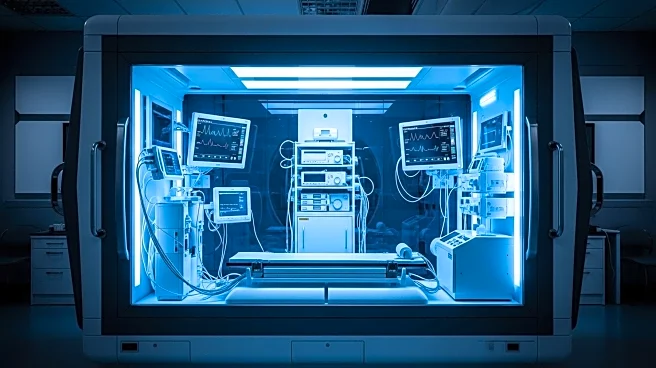What's Happening?
Russian President Vladimir Putin is reportedly focused on extending his life and rule through scientific advancements and medical support. During a recent conversation with Chinese President Xi Jinping, Putin discussed the potential for human organ transplants to achieve immortality. This conversation has sparked discussions about the leaders' intentions to maintain power indefinitely. Putin, who could remain in power until 2036 due to constitutional changes, is known for his interest in health and longevity. He travels with a team of doctors and is involved in research initiatives aimed at extending life, including organ-printing technologies. His eldest daughter, Maria Vorontsova, is also engaged in related genetic research.
Why It's Important?
Putin's pursuit of longevity reflects a broader trend among aging leaders to maintain power through scientific means. This focus on extending life could have significant implications for global politics, as leaders may seek to remain in power longer, potentially affecting succession plans and political stability. The investment in medical research and technology could also drive advancements in healthcare, benefiting society at large. However, it raises ethical questions about the use of science for personal gain and the potential consequences of leaders prioritizing their own longevity over democratic processes.










